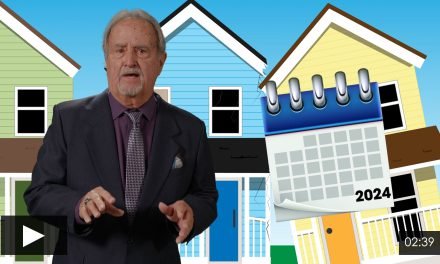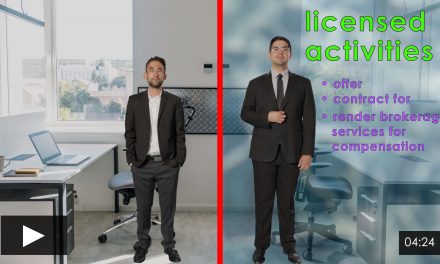It’s a new year and a new decade for the California Department of Real Estate (DRE), and the new year is bringing some changes. While you might find some of those changes in the DRE’s quarterly bulletin, others managed to fly under the radar.
At the end of 2019, the Department quietly replaced Daniel Sandri as Acting Real Estate Commissioner, a post he has held since Wayne Bell’s departure in the summer of 2018. The position is now held by Sandra Knau, formerly the head of Licensing and Administrative Services. It remains to be seen whether this change in leadership will mark a change in policy by the DRE, or when we will see the appointment of a full-time Real Estate Commissioner.
In the meantime, the DRE has stuffed their bulletin chock full of useful reminders, so let’s dive in without further ado.
Double up
In a dual agency situation, a broker simultaneously represents both principals in a transaction, either by themselves or through their representative agents, a model that presents an inherent conflict of interest.
In the 1980s, California was the first state to mandate that brokers disclose dual agency, such that brokers may only act as dual agents when both participants in the transaction are fully aware and consenting of the relationship.
California solidified the way dual agency is handled under state law in 2016, when the California Supreme Court ruled dual agents owe an equivalent fiduciary duty to both buyer and seller. [Horiike v. Coldwell Banker Residential Brokerage Co. (November 21, 2016)]
Without outright condemning dual agency, the DRE seeks to remind agents of the risks and pitfalls of engaging in the practice. A dual agent may not:
- tell the seller the ultimate price the buyer is willing to pay; or
- tell the buyer the price the seller is willing to accept. [Calif. Civil Code §2079.21]
Further, a dual agent may be unduly swayed by double commission to close the transaction, or by a prior relationship with one client over another.
The DRE also notes dual agency may streamline the transaction process. However, agents need to keep in mind that when engaged in dual agency, prompt disclosure to all participants in a transaction is paramount.
Related article:
Escrow exempt
Brokers who perform broker-controlled escrows may claim exemption from escrow agent licensing law when they are:
- licensed by the Real Estate Commissioner;
- performing escrow acts related to a real estate transaction;
- an agent of or participant in that transaction; and
- performing an act within that transaction for which a real estate license is required. [Calif. Financial Code §17006(a)(4)]
When a broker does not meet all four of these requirements, they do not qualify for the exemption. Additionally, the exemption is not all-encompassing, and comes with some strict restrictions. The exemption:
- may not be claimed for any arrangement entered into for the purpose of performing escrows for more than one business;
- needs to be personal to the real estate broker claiming it; and
- is not available when the real estate broker fails to directly supervise delegated escrow duties. [CFC §17006(b)]
Related article:
The CalBRE puts broker-controlled escrows under the microscope
Behind closed doors
In 2018, the California Consumer Privacy Act (CCPA) became law, going into effect on January 1, 2020. This law allows consumers to request certain businesses delete their personal information. However, this only applies to businesses that:
- earn greater than $25,000,000 in annual gross revenue;
- collect or share the personal information of more than 50,000 California residents annually; or
- earn at least half of their annual revenue from selling personal information for California residents. [CC §1798.140(c)(1)]
As a result, the law applies to few California licensees. For those it does impact, an exception stands for information — namely, real estate transaction records — licensees are required to retain by law.
Related article:
New California information privacy law eclipses current regulations for lenders
Law of the loan
Mortgage loan originators (MLOs) need to have a thorough handle on all laws governing mortgage purposes and the properties they apply to. Here, the DRE has compiled a handy chart detailing what law applies to what property type, as well as the purpose of any corresponding mortgage.
The chart includes:
- real estate licensure;
- SAFE Act MLO licensure;
- Article 5 loans;
- Article 6 loans;
- Article 7 loans;
- covered loans;
- higher-priced loans; and
- the Homeowner Bill of Rights.
If you need a refresher on any sections of California law pertaining to these subjects, consult the DRE’s chart in detail on pages 8-10 of the bulletin, and be sure to check out the code itself to understand the full breadth of each set of laws.
2019 legislative update
2019 saw plenty of real estate legislation passed, much of which first tuesday has reported on in recent months. Legislative updates the DRE wants to call attention to include:
- AB 5, which allows workers to be designated independent contractors but exempts many real estate licensees;
- AB 892, which corrects disclosure documents and requires that multiple listing services (MLSs) retain listing information for three years;
- AB 38, which requires certain disclosures for home in fire risk areas;
- SB 326, which restricts homeowners associations (HOAs) from suing developers;
- SB 652, which prohibits residential landlords and HOAs from restricting the display of religious items on entry doors;
- SB 323, which adds transparency to HOA elections;
- AB 670, which nullifies common interest development (CID) restrictions on construction or use of accessory dwelling units (ADUs);
- SB 754, which allows large HOAs to bypass elections under specific circumstances;
- SB 578, which allows California-registered arbitrators to resolve timeshare disputes; and
- SB 251, which makes procedural changes to a measure regarding departments merged into the Department of Business Oversight (DBO).
Related article:
The eLicensing saga continues
Another step forward in the DRE’s ongoing effort to streamline their licensing procedures! The newest addition to the online eLicensing system directs prospective licensees who have passed their exams to download license applications directly from their eLicensing accounts.
It sounds like the DRE is moving closer to a fully online license application system, the next logical move in the Department’s modernization.
For licensees who are looking to renew their existing real estate licenses, first tuesday provides a full tutorial on the process here.
Related article:
Form included
The bulletin also includes a form used to order various publications produced by the DRE, but those can also be found online.
That’s all for this round of the DRE’s real estate bulletin digest! We’ll see you again when spring is in the air.
















